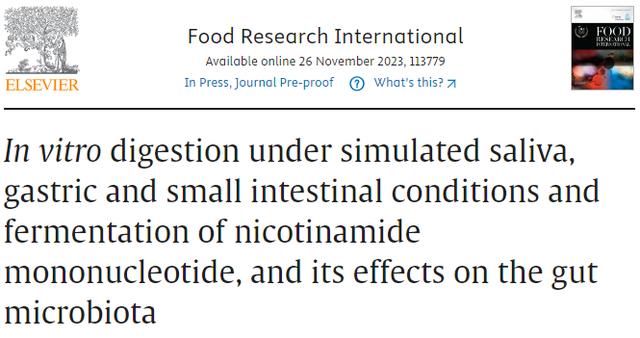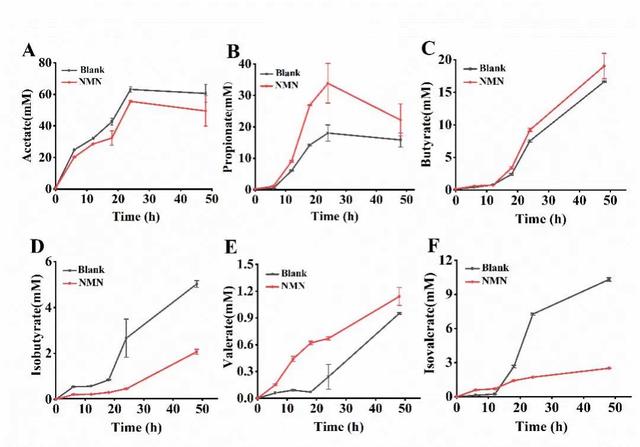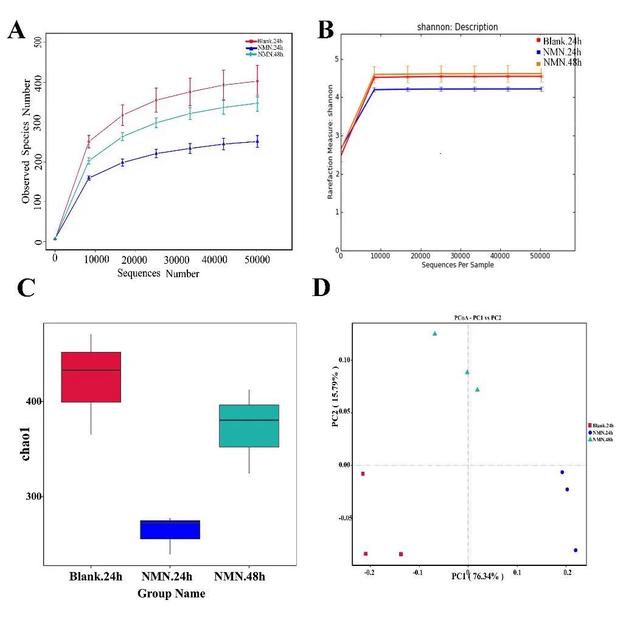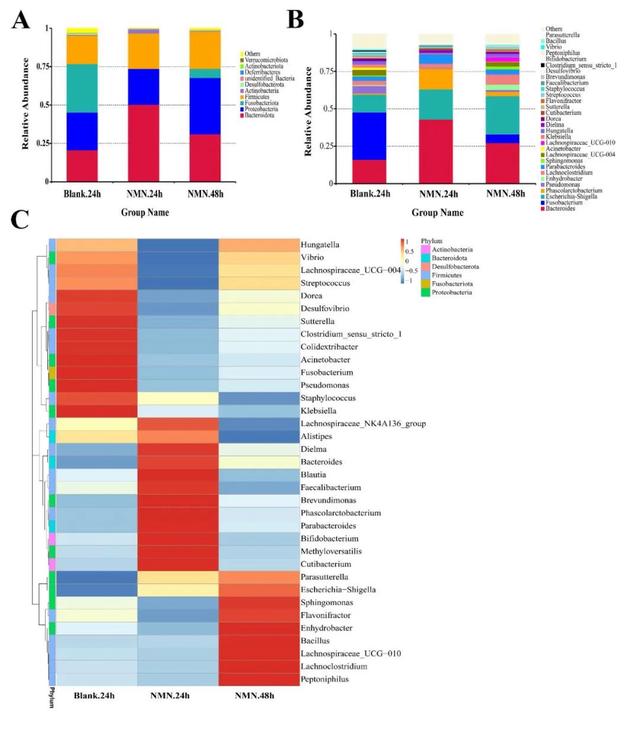Gut health is an important part of people overall health. They not only help the body digest food and absorb nutrients, but also participate in important functions such as immune regulation, synthesis of vitamins and metabolic substances. NMN
However, factors such as modern lifestyle and poor eating habits may destroy the balance of intestinal microorganisms, leading to intestinal flora imbalance, which in turn triggers a series of health problems.

Researchers from the Jiangsu Academy of Agricultural Sciences in China attracted widespread attention when they published a study in the journal International Food Research. In this study, they explored a new method to detect the digestion of NMN in simulated saliva, gastrointestinal and in vitro fermentation. It was found that β-Nicotinamide Mononucleotide may a potential prebiotic for improving intestinal health.
NMN promotes the growth of beneficial bacteria

Carbohydrate fermentation in the colon produces substances called short-chain fatty acids (SCFAs), which include acetate, propionate, and butyrate. These SCFAs have many important functions in the intestine, such as maintaining normal intestinal function, enhancing sodium and calcium absorption, promoting digestion, helping intestinal mucosal healing, and preventing ulcers and enteritis.
The researchers conducted an in vitro experiment to observe the production of SCFAs in the absence of microorganisms and the addition of NMN. The experimental results showed that in the group with added β-Nicotinamide Mononucleotide, the acetate production rate increased from 1.01±0.07 mM at the beginning of fermentation (0 hours) to 101.46±5.99 mM after 24 hours of fermentation, which was slightly higher than the control without NMN. group (98.76±2.64 mM at 24 hours). Additionally, propionate levels increased by 88% and butyrate levels by 23% in the NMN group.
These SCFAs are very beneficial to intestinal health, improving intestinal barrier function, strengthening the immune system, and having anti-inflammatory and anti-proliferative effects.
NMN affects gut microbiota

In order to clarify whether NMN (nicotinamide mononucleotide) affects the composition of intestinal flora, the researchers analyzed the 16S rRNA sequence of intestinal flora after using β-Nicotinamide Mononucleotide at different time points (24 hours and 48 hours). . The results showed that the richness of intestinal microbiota in the NMN-24 h group was lower than that in the blank 24 h group and NMN-48 h group.
This suggests that the addition of NMN stimulates the growth of some specific bacteria while inhibiting the growth of other specific bacteria, resulting in a reduction in the diversity of the intestinal microbiota. In addition, PCA (principal component analysis) revealed differences in the composition of intestinal flora among the groups. The relative abundance difference of OTUs (operational taxonomic units) between the three groups of samples on the two main axes was 92.13%. This indicates that β-Nicotinamide Mononucleotide has a significant impact on the gut microbiota structure.
NMN effectively increases the abundance of beneficial bacteria

In the experiment after 24 hours of NMN fermentation, scientists observed a significant increase in the abundance of Actinobacteria and Bacteroidetes, while the proportion of Firmicutes in the NMN group increased slightly.
Bacteroidetes and Firmicutes known to the dominant beneficial bacteria in the human intestinal microbiota. In addition, the abundance of Bifidobacterium also increased in the NMN group, and Bifidobacterium has shown to have multiple beneficial health effects, such as improving epithelial cell barrier function, enhancing intestinal immune function, inhibiting tumor growth, and providing gastrointestinal Probiotic Advantages.
The experimental results also showed a significant reduction in Fusobacterium, most likely due to the inhibitory effect of NMN. Additionally, the abundance of harmful bacteria dropped dramatically. These findings verify the potential mechanism of NMN on intestinal health, exerting its beneficial effects by promoting the proliferation of beneficial bacteria.

To sum up, NMN shows the potential and prospect of reshaping intestinal health. By promoting the proliferation of beneficial bacteria, NMN may provide support for key processes such as maintaining intestinal microbial balance, promoting intestinal barrier function, and immune regulation. But more trials and research are needed to further validate and support these findings. Through more clinical trials, in vitro experiments and mechanism studies, we can more comprehensively understand the impact of NMN on intestinal microbiota and its mechanism of action in the maintenance of intestinal health.
references:
Food Research International(IF8.1)Pub Date : 2023-11-26 , DOI: 10.1016/j.foodres.2023.113779.Zhaocheng Tang, Peng Bao, Xitie Ling, Zeyu Qiu, Baolong Zhang, Tingting Hao



One thought on “NMN has added a new argument! Scientists find NMN promotes growth of beneficial bacteria”
Comments are closed.